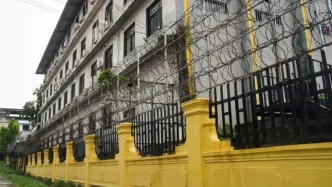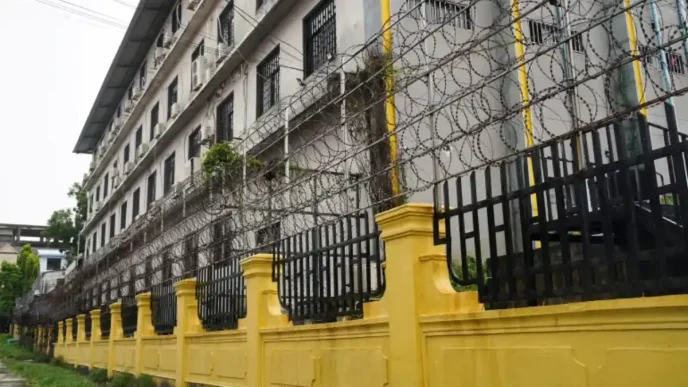In a significant move to alleviate the ongoing humanitarian crisis in Gaza, Singapore has announced the deployment of a medical contingent from the Singapore Armed Forces (SAF) and the Ministry of Health (MOH) to Egypt. Set to assist Palestinians evacuated from the conflict-ridden region, the team will provide critical care in Egyptian hospitals over the coming weeks, marking a new chapter in Singapore’s sustained efforts to support those affected by the crisis that escalated following the October 7, 2023, attack.
Preparing for Deployment
The initiative began with a preparatory mission involving a team of eight SAF personnel and one MOH representative, who will travel to Egypt to coordinate with local authorities and on-the-ground organizations. Their goal is to assess the needs for supplies and equipment to ensure the medical contingent can operate effectively. The MOH member is scheduled to join the team on April 22, 2025, following initial engagements by the SAF group.
A formal send-off ceremony for this advance team took place on April 16 at the Ministry of Defence (Mindef) headquarters on Gombak Drive in Singapore. The event saw the attendance of key government figures, including Defence Minister Ng Eng Hen, Minister for Social and Family Development and Second Minister for Health Masagos Zulkifli, and Senior Minister of State for Defence Zaqy Mohamad. Their presence underscored the national importance of this humanitarian mission.
A Cautious Approach to Aid
Speaking to the media during the send-off, Dr. Ng Eng Hen highlighted Singapore’s careful approach to contributing to Gaza’s relief efforts. “In selecting what we can contribute, we’ve been very careful to look at what we can accomplish, whether we can be effective and also keep soldiers and personnel safe” he said. He noted that direct intervention in Gaza itself was deemed too risky due to the volatile situation on the ground, which could endanger personnel or halt operations.
Instead, the decision to base operations in Egypt was seen as a more sustainable option. “These opportunities in Egypt seem sustainable because they’ve been treating patients for quite some time, therefore we decided that this is the approach” Dr. Ng added. He emphasized that Egyptian hospitals have become a refuge for Palestinians evacuated from Gaza, particularly since a ceasefire in January 2025, providing a safer and more stable environment for Singapore’s medical teams to operate.
Dr. Ng also indicated that this deployment might extend over several months, potentially longer if the team proves effective in making a tangible difference. This longer-than-usual commitment reflects Singapore’s determination to play a meaningful role in addressing the crisis, despite the logistical and security challenges inherent in such missions.
Building on Previous Efforts
Singapore’s involvement in Gaza’s humanitarian crisis is not new. Previous efforts included the deployment of a Republic of Singapore Air Force (RSAF) Airbus A330 Multi-Role Tanker Transport aircraft to deliver aid directly to Gaza. Additionally, a medical team was stationed on a French hospital ship at Egypt’s El-Arish Port to treat casualties from the conflict. These initiatives laid the groundwork for the current mission, demonstrating Singapore’s ongoing commitment to the region.
According to a Mindef statement released on April 16, the impact of this latest deployment is expected to be significant. The number of Gaza residents who can be assisted in Egyptian hospitals is projected to be “many times compared to previous SAF efforts.” This scaling up of operations reflects both the urgency of the situation and the strengthened collaboration between Singapore and Egyptian authorities.
Senior Minister of State Zaqy Mohamad, who visited Egypt in February 2025 to explore further areas of cooperation, shared insights from his discussions with Egyptian officials, including the Minister for Health and Population, Dr. Khaled Abdelghaffar, and Assistant Minister of Defence for Foreign Affairs, General Walaa Adel Bibers. “Having visited the patients, those who were victims of the conflict… there is a lot Singapore can contribute to do our part to alleviate the pain and suffering for those affected. I am proud there is no shortage of volunteers” he said.
Community and Government Support
Minister Masagos Zulkifli emphasized the broader societal support for this mission, noting that it represents Singapore’s deep-seated commitment to helping those in distress. “I’m happy that Singapore shows that we care for people who are going through tragic moments” he said. He revealed that the Singaporean community has raised substantial funds for Gaza, with $15 million collected overall, including $2 million during the holy month of Ramadan in March 2025. Combined with government contributions, the total aid exceeds $20 million, a testament to the nation’s collective resolve.
This financial support complements the on-the-ground efforts, ensuring that resources are available to sustain the medical mission and other relief activities. The funds are likely to support not only the current deployment but also future initiatives aimed at addressing the long-term needs of Gaza’s population.
Regional and International Context
The humanitarian crisis in Gaza, exacerbated by the conflict that intensified in October 2023, has drawn global attention and prompted responses from numerous countries and organizations. Singapore’s decision to operate through Egypt aligns with broader international efforts to use neighboring countries as bases for aid delivery, given the challenges of direct access to Gaza amid ongoing instability.
Egypt has emerged as a critical hub for such operations, with its hospitals treating thousands of Palestinians who have been evacuated since the conflict’s escalation. By partnering with Egyptian medical personnel, Singapore’s contingent aims to bolster existing efforts, providing specialized care and potentially training local staff to enhance long-term capacity.
However, the mission is not without its challenges. Operating in a foreign context requires navigating cultural, logistical, and political sensitivities. While Egypt offers a relatively stable environment compared to Gaza, the proximity to an active conflict zone means that security remains a paramount concern. Dr. Ng’s emphasis on personnel safety reflects an awareness of these risks, and it is likely that robust contingency plans are in place to protect the team.
Broader Implications for Singapore’s Foreign Policy
This deployment also carries implications for Singapore’s foreign policy, particularly its role in international humanitarian efforts. As a small but influential nation in Southeast Asia, Singapore has often positioned itself as a mediator and contributor to global peace and stability. Its involvement in Gaza, though focused on medical aid, sends a signal of solidarity with the international community’s efforts to address one of the world’s most pressing crises.
Moreover, the mission strengthens bilateral ties with Egypt, a key player in Middle Eastern geopolitics. The collaboration forged through meetings like those attended by Mr. Zaqy in February could pave the way for deeper cooperation in other areas, such as disaster response or public health initiatives. For Singapore, such partnerships enhance its diplomatic footprint and reinforce its reputation as a responsible global citizen.
Domestically, the mission and the community’s fundraising efforts highlight a unified national response to distant suffering. The $20 million raised, as noted by Mr. Masagos, is not just a financial contribution but a reflection of Singaporean values—compassion, resilience, and a commitment to helping those in need, regardless of geographic or cultural distance.
Looking Ahead
As Singapore’s medical contingent prepares to begin its work in Egypt, the mission stands as a beacon of hope amid the despair of Gaza’s humanitarian crisis. While the immediate focus is on providing care to evacuated Palestinians, the broader impact of this deployment could resonate far beyond hospital wards. It raises questions about how sustained international support can address the root causes of such crises and whether small nations like Singapore can inspire larger powers to act.
For now, the dedication of the SAF and MOH personnel, backed by government and community support, offers a tangible contribution to easing the suffering of those caught in conflict. As the mission unfolds over the coming months, its success may well shape the future of Singapore’s humanitarian engagements in the region and beyond.














